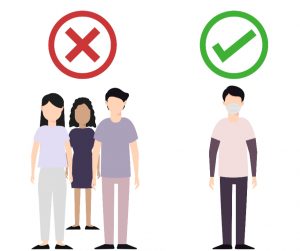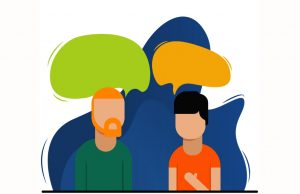Differences Between Introverts And Extroverts: We as individuals are of comparative importance we all have comparative human impulses, sentiments, bodies, considerations, and minds, yet every individual is extraordinary in its way as our point of view, feeling, and actions aren’t equivalent to other people. How we act or answer towards people or a situation reachable chooses our personality characteristics.
Generally, Introverts and extroverts are often seen to be opposed personality types, with one being quiet and reclusive and the other outgoing and communicative. These descriptions, however, are insufficient to define the characteristics of these individuals. Introversion and extroversion are opposites. Where people fall on this spectrum has an impact on how they work, choose a career, live their lives, and interact with coworkers and clients.
It’s critical to understand the differences between introverts and extroverts if you want to build successful, productive relationships with both. In this article, we’ll look at the differences between introverts and extroverts to better understand why people behave the way they do and gain an advantage when interacting with them.
Recommended: Advantages and Disadvantages of being and Introvert
What Are Personalities?
Personality refers to individual differences in different patterns of thinking, emotion, and action.
Interactions with other people are the most vivid way for people to express their feelings, attitudes, and beliefs. It begins within the individual and is quite consistent throughout life.

Personality is composed of five key components. Each dimension has a scale. Introverts and extroverts are at opposite ends of the personality continuum. living on the periphery of a spectrum The way you get and use energy has an impact on where you lie on this spectrum. You can, however, fall anywhere along with this range, not simply at one end. While some people fall on either end of the spectrum, the vast majority fall somewhere in the center.
Also see: Advantages and Disadvantages of Being an Extrovert
What Is The Definition Of An Introvert?
Introversion is a personality attribute characterized by a predilection for internal rather than exterior stimuli. An introvert is someone who has qualities of the introverted personality type, which means they are more at ease and energized when they are concentrating on their inner thoughts and ideas rather than what is going on around them. They would rather spend time with one or two people than with large groups or crowds.

Many people mistake introverts for being shy and anti-social, but this is not true. They take a long time to become friends with others. They are difficult to befriend and have a narrow circle of connections, yet their bond is strong.
Introverts have stronger blood flow to the frontal lobe, the region of the brain that helps you organize, remember things, and solve issues, than extroverts, according to studies. It was also observed that introvert and extrovert brains react to dopamine in different ways. Dopamine (a hormone that activates the reward- and pleasure-seeking region of your brain) gives extroverts an exciting buzz but also makes introverts feel drained. Introverts spend a lot of time thinking.

Recommended: Signs that you are an Extrovert
They are thoughtful and creative and are characterized as;
a. Anxious Introverts: Anxious introverts frequently feel disturbed or nervous around people during social encounters.
b. Social Introverts favor small gatherings of individuals over huge groups of people. They would rather spend a calm night at home than go out.
c. Inhibited Introverts: This sort of introvert tends to overthink, spending a large amount of time analyzing a decision before acting.
d. Thinking Introverts: These introverts spend a lot of time thinking. They are thoughtful and creative.
Many introverts have a combination of the four personality types. Many introverts exhibit characteristics that you would not believe are typical of their personality.
Recommended: How to keep a conversation going with a girl
What Is The Definition Of An Extrovert?
An extrovert is a form of human behavior in which a person enjoys being around and interacting with others. They are outgoing and confident in social situations. An extrovert’s fundamental nature is to love human connection.

People with more outgoing personalities like being the focus of attention. They thrive in social environments and crave social stimulation. Extroverts aren’t frightened to meet new people, and they seldom shun uncomfortable circumstances for fear of messing up or not knowing someone.
Furthermore, extroverts have outstanding communication skills. Individuals with this mindset like social gatherings since they are bored by seclusion and prefer to focus on objective truths rather than emotional emotions and concepts. They appreciate being the focus of attention as well. They are the same in both public and private settings. As a result, they are more outgoing, practical, informal, and dynamic.

Also see: Advantages and Disadvantages of Being an Entrepreneur
The Differences Between Introverts And Extroverts
1. Definition: Introverts are reserved by nature because they are preoccupied with their thoughts and feelings; as a result, they demand a lot of personal space and prefer the company of a few close friends.
An extrovert is a gregarious person and vocal and who likes being around and chatting with others.
2. Descriptive Language: Introverts describe things in greater depth since they spend the majority of their time examining their surroundings. While extroverts explain things more abstractly and with less detail, they frequently exaggerate.
Recommended: Countries with the Best Education System in the world
3. Socialising: In social situations, introverts and extroverts differ greatly. Introverts are aware of the lives of others yet choose not to participate in social situations. They seldom attend non-business-related gatherings, therefore you will rarely if ever, see them at workplace parties or purchasing rounds of drinks after work.
Extroverts, on the other hand, like socializing with everybody and everyone. They like starting personal conversations and rapidly become the ‘social bees’ of their respective departments, throwing parties and asking everyone to drink after work.
4. Professionalism: Introvert managers, on the other hand, might function as a mediator or diplomats since they prefer to observe behavior from a distance. They can frequently convey opposing points of view without becoming emotionally engaged.
Managers who are extroverts may easily become excessively friendly with their employees and clients, even bordering on harassment. Proper limits are required if this sort of management is to preserve the respect of others.
Recommended: Differences Between Objective And Subjective
5. Risk: Introverts frequently avoid danger and participate in low-risk actions. Extroverts are frequently eager to participate in risky practices.
6. Goals and Agenda: Introverts often prefer to begin the workday by organizing and planning alone for the first half-hour. They may wish to retreat strategically during the day. Allow them to arrange “alone time,” and encourage them to utilize a “do not disturb” signal when required. Introverts frequently prefer long-term goals over quick pleasure.
Extroverts frequently prioritize instant satisfaction above long-term aspirations. As a result, they would typically prefer to meet with others and get the day started. They are more productive when they can bounce ideas off others during the workday. You should plan regular brainstorming meetings or urge them to collaborate with others as required.
Recommended: How to think and argue like a Lawyer
7. Process of Refueling Minds: Introverts’ vitality is recharged by isolation. They are energized by spending time alone. They lose energy from being with others for lengthy periods, especially in huge crowds.
Social contacts refresh the vitality of extroverts. They get their vitality from other individuals. Extroverts feel that spending too much time alone saps their vitality. They refuel by being sociable.
8. Focus: Introverts generally have exceptional focus and problem-solving abilities. They can focus intensely on anything. When they propose their strategy, it is generally completely comprehensive and well thought out.
Extroverts are easily distracted since they can’t focus on anything for lengthy periods. They might quickly get disorganized in carrying out their obligations due to the responsibilities they sign up for and all the discussions they constantly interrupt themselves to participate in.
Recommended: Best time to read and understand effectively
9. Brain Sensitivity: Introverts are more receptive to punishment and internal reward cues. Extroverts are more responsive to rewards and external reward cues.
10. Arousal Levels: The degree to which our brains and bodies are attentive and receptive to stimulus.
This type of stimulus might be overwhelming for introverts since their rate of arousal is substantially higher, therefore they are readily aroused. Time alone, one-on-one interactions, and predictable scenarios are more likely to be enjoyable for introverts who are more sensitive to external stimuli.
Extroverts have a lower fundamental rate of arousal. This means that extroverts must work more to awaken their minds and bodies to the same ‘normal‘ condition that introverts may readily achieve. This drives extroverts to seek novelty and adventure, as well as the companionship of others.
Recommended: Best Android Apps For Programmers or Developers
Conclusion
Being an introvert or extrovert does not make you a better individual; rather, how you manage your flaws makes you the greatest manager. While you can act like your peer for a short period, it cannot be permanent. So the ideal way is to perfect your strengths while constantly working on your flaws.

Edeh Samuel Chukwuemeka, ACMC, is a lawyer and a certified mediator/conciliator in Nigeria. He is also a developer with knowledge in various programming languages. Samuel is determined to leverage his skills in technology, SEO, and legal practice to revolutionize the legal profession worldwide by creating web and mobile applications that simplify legal research. Sam is also passionate about educating and providing valuable information to people.